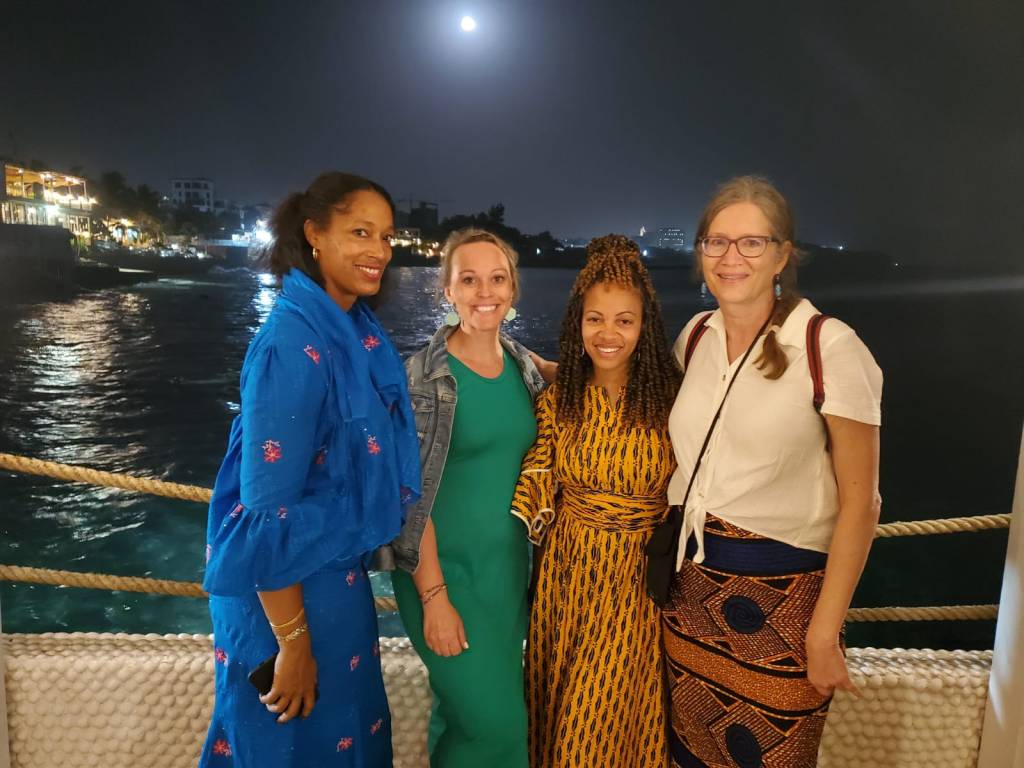It’s a cliche, I know, but it will be difficult to explain my experience in Senegal to someone who has never been there, especially most Americans.
I know that an American looking at my photos might see dusty roads, trash in ditches, and half-built cinder block structures, and make assumptions about the people who live and work there.
They might also look at the data – GDP per capita around $1600 USD, a ranking of 170 on the UN Human Development Index – and make assumptions about people’s work ethic or motivation.
In both cases, they would be wrong.
The Senegalese people I met were not only warm and generous, they were well-educated and thoughtful. We talked about pedagogy, then about politics, then about exploitation and decolonization. We talked about health care and nutrition and how to build communities that retain familial closeness but also encourage opportunity. I met so many people with master’s degrees and PhDs, and people (even kids) who speak 4-5 languages fluently.
And work ethic? Every morning when we headed into town in Kaolack, the streets were already humming with people who had been up working since dawn. Farmers and merchants were in motion, bringing fresh fruit, meat, hay, peanuts, fabric, clothing, tech items and everything you could imagine into the city. They moved products (and themselves) by every mode of transportation: foot, bicycle, donkey-cart, motorbike, taxi, bus and trucks.

Of course, this makes it all sound very serious. We also found that our Senegalese counterparts shared our sense of humor, and we were up late each night together, laughing at each other and ourselves.
In particular, there was a moment at the wedding we attended when the griots were shouting, thorugh megaphones, directly at two of our cohort members. It wasn’t clear what they were saying, but we saw that other guests had given the griots some cash when they spoke, so we did the same.
We found out later that most people were giving 200 or 300 XOFs, but we only had 10,000 XOF bills (about $20), so that’s what we gave. They were still laughing and talking about our foolishness days later, and so were we.

We were asked to develop a guiding question before our International Field Experience, and mine was related to how Senegalese schools prepare students for entrepreneurship or post-secondary life.
I wasn’t able to answer it exactly, but I did gather a few bits of evidence.
#1 Most people in Senegal are already entrepreneurial. They have to be, because there aren’t really jobs in corporate or retail spaces, or even manufacturing. Most people are producing and selling what they can to make a living.
#2 Some forward-thinking teachers recognize that people need more business training to be more successful at entrepreneurship. As one colleague told me, “they don’t always understand how to keep the business money and personal money separate.”
#3 Many teachers would like to see the schools do a better job of preparing students for their next steps, whether that is pursuing a university degree, mastering a trade, or running a business.
#4 Teachers like Aly and Mouhamadou already subtly inject skills like problem-solving and leadership into the national curriculum, and they are spreading the word to other teachers.
#5 Many students see English as their pathway forward to a good future, even if they are not sure exactly what that looks like.
Going home now, after two weeks, what is most clear to me is that Senegalese people are very much like us. They love their families. They care about their country. They cook delicious food and wear beautiful clothing. They want a good future for their children.
They are willing to open their homes and their hearts to us because they believe that through this relationship, they can build better lives. I believe it too, and I hope we can find ways to work together moving forward.

Martha, it has been such a blessing to follow your blog and all the wonderful work you have done while in Senegal. So proud of you. Patty Hastings
LikeLike
Thanks, Patty! Wonderful to hear from you!
LikeLike